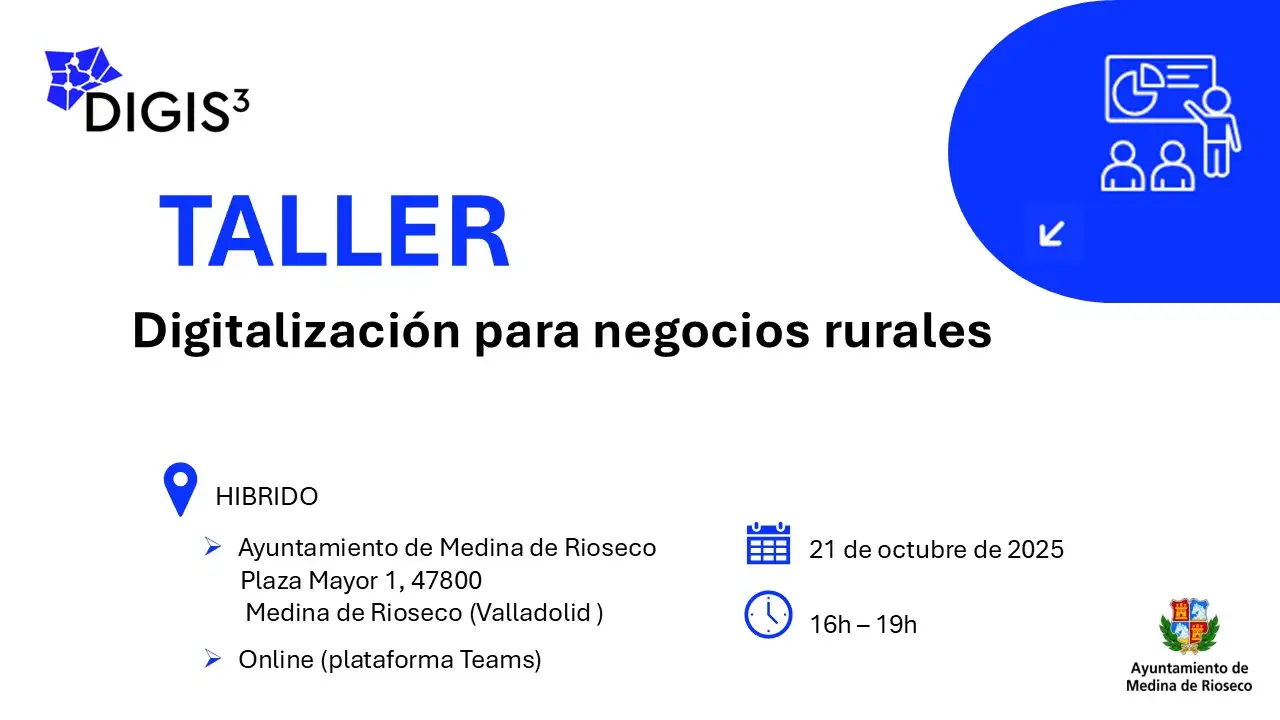Digitalisation for rural businesses

Digitalisation for rural businesses
Table of contents
Welcome and background
Presentation of DIGIS3.
Workshop objectives and mixed methodology.
Relevance of digitisation in rural areas.
Essential digital tools
Webs autogestionables y presencia online (Wix AI, WordPress, Google My Business)
Social media and customer communication (WhatsApp Business, Canva, Mailchimp).
Basic automation with accessible AI (ChatGPT, Make, Gamma).
Real cases.
Step-by-step digitisation strategies
From diagnosis to roadmap: defining priorities.
Using the impact vs. complexity matrix.
Planning and selecting tools according to the business profile.
Prioritisation according to available resources and immediate benefits.
Digital security for small businesses
Most common risks: phishing, ransomware, weak passwords.
Best practices: backups, 2FA, antivirus software, and firewalls.
Free resources available (password managers).
Available resources and assistance
Regional grants (digitalisation and cybersecurity).
National programmes: Kit Digital, Red.es.
Free training platforms (CyL Digital, AceleraPyme, INCIBE, DigComp).
DIGIS3 services: diagnosis, advice, training, testing before investing.
Collaborative practical part
Group work: designing a basic roadmap to improve a digital area of the business.
Sharing selected cases.
Guidance from the training team.
Digital business diagnosis
Introduction to digital maturity assessment (DMA).
Guidelines for conducting a self-assessment after the workshop.
Closure, doubts and next steps
Summary of key ideas and final recommendations.
Question and answer session and satisfaction survey.
MEDINA DE RIOSECO TOWN HALL
PLAZA MAYOR 1, 47800, Medina de Rioseco (Valladolid) Training Room, 1st Floor
Mixted
16.00 - 19.00